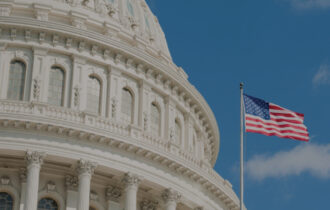The Affordable Care Act (ACA) created a federally financed subsidy, called the premium tax credit (PTC), to help eligible individuals and families with low or moderate incomes afford health insurance purchased through an Exchange. During the COVID-19 pandemic, Congress temporarily enhanced the PTC by eliminating the income cap for eligibility and increasing the amount of the subsidy for all income brackets. According to a Congressional Research Service report, the number of Exchange enrollees receiving subsidized coverage rose from 9.2 million in 2020 (before the PTC enhancements) to 19.3 million in 2024.
The enhanced PTC is scheduled to expire at the end of 2025. When the enhanced subsidies expire, individuals and families with incomes above 400% of the federal poverty level (FPL) will no longer be eligible for PTCs. Also, for individuals still eligible for PTCs, the amount will be smaller compared to the enhanced credits. This is expected to lead to a reduction in federal spending, as well as an increase in premiums and a rise in the number of individuals without health coverage.
POTENTIAL IMPACT
Employers may feel the impact of the expiration of the enhanced PTC in various ways, depending on their workforce demographics and benefit offerings. As premiums increase in the individual insurance market, more employees may seek to enroll in employer-sponsored coverage where it is available. Employees who are not eligible for affordable coverage through their current employers may consider switching jobs to gain access to such coverage. Also, if fewer employees qualify for the PTC, an applicable large employer’s potential liability for a pay-or-play penalty under the ACA may be reduced. However, employers that sponsor individual coverage health reimbursement arrangements (ICHRAs) that help employees pay their individual health insurance premiums may need to increase their contributions to keep coverage affordable for their employees.
SUBSIDY ELIGIBILITY
In general, to receive the PTC, an individual must enroll in health insurance through an Exchange and:
- Have household income of at least 100% and no more than 400% of FPL for the taxpayer’s family size*;
- Not be eligible for coverage through a government-sponsored program; and
- Not be eligible for employer-sponsored health coverage that is affordable and provides minimum value.
*The subsidy enhancements temporarily removed this income cap.
FUTURE OF ENHANCED SUBSIDIES
- Unless extended by Congress, the subsidy enhancements will expire at the end of 2025.
- The spending bill enacted by Congress to end the government shutdown did not extend the enhancements.
- Although the Senate has agreed to vote on the enhanced PTC in December, its future remains uncertain.













